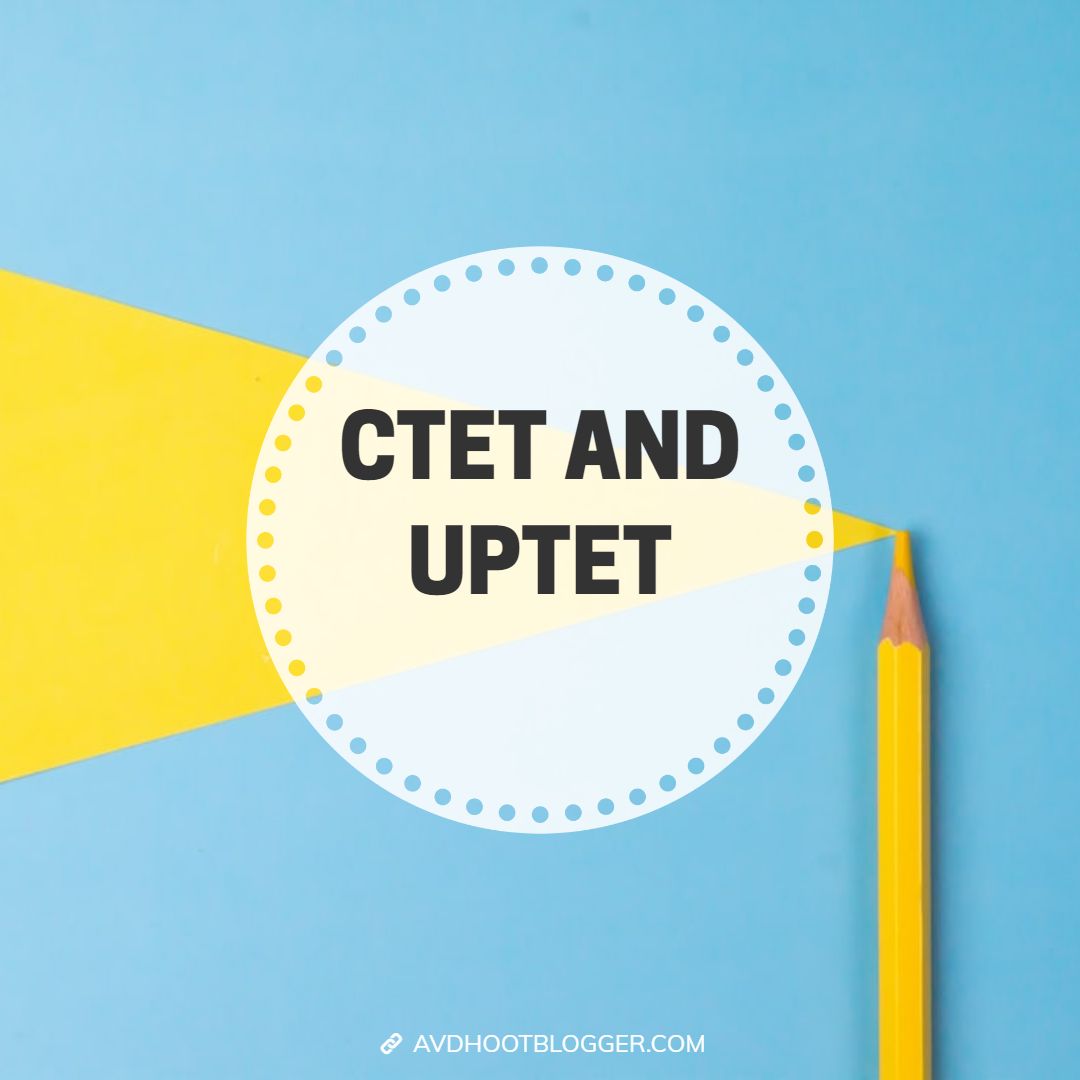CTET and UPTET: Understanding the Central and State-Level Teacher Eligibility Tests
CTET and UPTET: Understanding the Central and State-Level Teacher Eligibility Tests
Introduction
When it comes to pursuing a career in teaching, aspiring candidates need to fulfill certain requirements to prove their competency. The Central Teacher Eligibility Test (CTET) and the Uttar Pradesh Teacher Eligibility Test (UPTET) are two important examinations that play a crucial role in determining the eligibility of candidates for teaching positions in India. In this article, we will explore what CTET and UPTET are, their significance, eligibility criteria, exam patterns, syllabi, and valuable tips for preparation.

CTET Exam Topics
CTET Exam Topper: How to Ace the Central Teacher Eligibility Test
CTET Paper 1 and 2 Eligibility Criteria: A Comprehensive Guide
How CTET exam will be conducted
How CTET Marks are Calculated?
1. What is CTET?
CTET stands for the Central Teacher Eligibility Test. It is a national-level examination conducted by the Central Board of Secondary Education (CBSE) in India. The test aims to assess the teaching aptitude and knowledge of candidates who aspire to become teachers for Classes I to VIII in central government schools such as Kendriya Vidyalayas and Jawahar Navodaya Vidyalayas.
2. Importance of CTET
Clearing the CTET exam is crucial for candidates who wish to teach in central government schools. It serves as a qualifying benchmark for teaching positions and enhances the employment opportunities for aspiring teachers. Many state governments and private schools also consider CTET scores during the recruitment process.
3. CTET Eligibility Criteria
To be eligible for the CTET exam, candidates must meet certain criteria. They should have completed their senior secondary education (or its equivalent) with a minimum of 50% marks and possess a two-year Diploma in Elementary Education (D.El.Ed)/four-year Bachelor of Elementary Education (B.El.Ed)/two-year Diploma in Education (Special Education) or should hold a Graduation degree. Additionally, there are specific eligibility requirements for different levels of teaching.
4. CTET Exam Pattern
The CTET exam consists of two papers: Paper I and Paper II. Paper I is for candidates aspiring to teach Classes I to V, while Paper II is for those aiming to teach Classes VI to VIII. Both papers consist of multiple-choice questions (MCQs) covering subjects like Child Development and Pedagogy, Language I and II, Mathematics, Environmental Studies, and more. It is important to understand the exam pattern and marking scheme to prepare effectively.
5. CTET Syllabus
The CTET syllabus includes various topics related to education, child development, teaching methodologies, languages, mathematics, and environmental studies. Candidates should thoroughly study the prescribed syllabus and focus on important concepts and theories. Familiarizing themselves with the syllabus helps them plan their preparation strategy effectively.
6. Tips to Prepare for CTET
Preparing for CTET requires strategic planning and dedicated efforts. Here are some valuable tips to help you excel in the exam:
- Understand the exam pattern and syllabus thoroughly.
- Create a study schedule and allocate time for each subject.
- Refer to quality study materials and books recommended by experts.
- Practice previous years’ question papers and take mock tests for self-assessment.
- Stay updated with current affairs related to education and pedagogy.
- Seek guidance from experienced educators or join coaching institutes if needed.
7. Benefits of Clearing CTET
Clearing the CTET exam opens up various benefits and opportunities for aspiring teachers. Some of the key advantages include:
- Enhanced employability in central government schools like Kendriya Vidyalayas and Jawahar Navodaya Vidyalayas.
- Higher chances of being recruited in state government schools and private schools.
- Recognition and validation of teaching abilities and expertise.
- Personal and professional growth in the field of education.
8. What is UPTET?
UPTET stands for the Uttar Pradesh Teacher Eligibility Test. It is a state-level examination conducted by the Uttar Pradesh Basic Education Board (UPBEB) for aspiring teachers who want to teach in primary and upper primary schools within the state of Uttar Pradesh.
9. Similarities Between CTET and UPTET
CTET and UPTET share some similarities in terms of their purpose and structure. Both tests aim to assess the eligibility of candidates for teaching positions and require candidates to fulfill specific criteria related to education qualifications and age limits. They consist of multiple-choice questions and have a similar exam pattern and syllabus.
10. Differences Between CTET and UPTET
Although CTET and UPTET have similarities, there are notable differences between the two examinations. The primary difference lies in the scope of the tests. CTET is a national-level exam, whereas UPTET is limited to the state of Uttar Pradesh. The eligibility criteria, exam pattern, and syllabus may also differ slightly between the two tests.
11. UPTET Eligibility Criteria
To appear for the UPTET exam, candidates need to meet specific eligibility criteria. They should have completed their graduation with a minimum of 50% marks and have a two-year Diploma in Elementary Education (D.El.Ed) or should possess a Bachelor’s degree in Education (B.Ed). The eligibility requirements may vary for different categories of candidates.
12. UPTET Exam Pattern
The UPTET exam consists of two papers: Paper I and Paper II. Paper I is for candidates aspiring to teach Classes I to V, while Paper II is for those aiming to teach Classes VI to VIII. The exam includes subjects like Child Development and Pedagogy, Language I and II, Mathematics, Environmental Studies, and more. Understanding the exam pattern helps candidates strategize their preparation effectively.
13. UPTET Syllabus
The UPTET syllabus covers various subjects and topics related to education, child development, teaching methodologies, languages, mathematics, and environmental studies. Candidates should thoroughly study the prescribed syllabus and focus on important concepts and theories. Regular practice and revision are key to mastering the syllabus.
14. Tips to Prepare for UPTET
To excel in the UPTET exam, candidates should follow these valuable tips:
- Understand the exam pattern and syllabus in detail.
- Create a study plan and allocate time for each subject accordingly.
- Refer to reliable study materials and resources recommended by experts.
- Solve previous years’ question papers and take mock tests for self-assessment.
- Stay updated with current affairs related to education and pedagogy.
- Seek guidance from experienced educators or join coaching institutes if needed.
15. Conclusion
CTET and UPTET are two important teacher eligibility tests that determine the eligibility of candidates for teaching positions in central and state government schools, respectively. Clearing these exams opens up significant career opportunities for aspiring teachers. By understanding the exam patterns, syllabi, and following effective preparation strategies, candidates can increase their chances of success in these examinations.
FAQs (Frequently Asked Questions)
1. Is CTET applicable for private school teaching positions? No, CTET is primarily applicable for central government schools. However, some private schools may also consider CTET scores during their recruitment process.
2. Can I appear for both CTET and UPTET? Yes, candidates can appear for both CTET and UPTET as per their eligibility criteria. Clearing both exams can broaden the range of job opportunities.
3. Are there any age restrictions for CTET and UPTET? There are no age restrictions for appearing in the CTET exam. However, UPTET has specific age criteria that candidates need to fulfill.
4. How often are CTET and UPTET exams conducted? The frequency of CTET and UPTET exams may vary. It is advisable to visit the official websites or stay updated with notifications from the respective conducting authorities.
5. How long is the validity of CTET and UPTET certificates? The CTET and UPTET certificates are valid for a period of seven years from the date of declaration of the result. Candidates can apply for teaching positions within this validity period.



